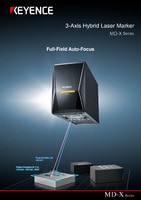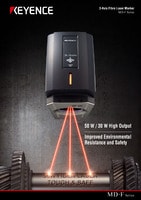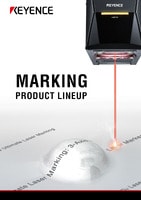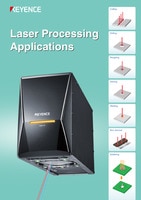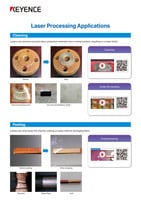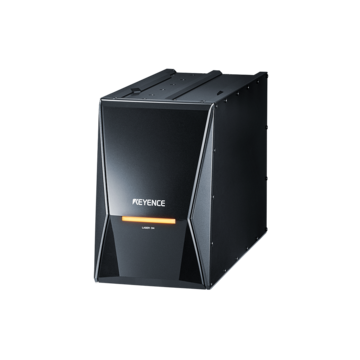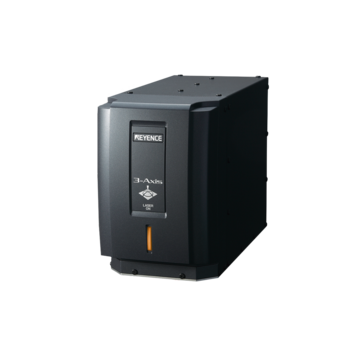Laser Marking Systems / Laser Markers
Advantages of Fibre Laser Cleaning
-
Tags:
- Laser Cleaning , Laser Rust Removal , Metal
A fibre laser cleaning machine is a piece of equipment that uses a focused beam of light to remove contaminants from materials. Fibre laser cleaning is used in industries like automotive, aerospace, and medical due to its advantages over traditional cleaning methods, like sandblasting and chemical cleaning.
Fibre laser cleaning is becoming increasingly popular because of its non-contact, efficient, and environmentally friendly properties. Not only is laser cleaning more eco-friendly than traditional methods, but this non-contact nature also ensures no damage occurs to either products or surfaces during cleaning processes.
Traditional methods often lack precision, making the laser beam an invaluable asset in cleaning intricate components more accurately and precisely than other means. Thanks to its pinpoint focus, laser light can clean specific areas without touching other parts. This makes laser cleaning ideal for delicate surfaces like those found on electric vehicle batteries and fuel cells. It's also becoming increasingly popular among manufacturing companies that need to clean complex products efficiently.
A fibre laser cleaning machine is also more effective than its counterparts in terms of setup and efficiency, requiring only minutes before producing zero waste material which must then be disposed of later. This leads to decreased downtime for your company when operating the machine.
Applications for Fibre Laser Cleaning
One of the primary uses for fibre laser cleaning is in rust removal from metal surfaces. Rust can have an enormous impact on product quality, so its removal as quickly and accurately as possible is crucial for quality assurance. Lasers provide fast and precise solutions to remove this contaminant without harming steel's base metal or its corrosion resistance properties.
Laser cleaning has also proven its worth in mould cleaning applications. Tyre manufacturers produce millions of tyres annually, and their mould quality plays a pivotal role in assuring product quality. Laser cleaning provides a quick and systematic way to clear away debris from moulds quickly and efficiently while saving downtime for production and guaranteeing the quality of their finished products.
Lasers can also be utilised for many additional uses, including deburring and surface finishing. Due to their precision, lasers can tackle even hard-to-reach places. They are also efficient at removing coatings or paint and help roughen surfaces for improved adhesion.
Fibre Laser Cleaning is Eco-Friendly
Laser cleaning uses a laser beam to efficiently and safely eliminate rust and contaminants from metal surfaces, creating an eco-friendly alternative that doesn't involve harmful substances. In addition, unlike abrasive cleaning techniques that produce airborne diseases like asbestos exposure, fibre laser cleaning does not cause airborne illnesses that may impact human health.
Traditional cleaning methods, like media blasting and chemical corrosion cleaning, can be harsh on surfaces while producing secondary pollution. Furthermore, the equipment is costly to operate and maintenance-intensive compared to a fibre laser cleaning machine, which can handle even the toughest jobs with ease.
A fibre laser cleaner can quickly and effectively eliminate both organic pollutants and inorganic materials such as metal rust, oxide, and dust from any surface. The laser's beam fires short pulses to avoid damaging the underlying material, allowing the rusted surface to absorb energy from the laser beam and raise the temperature until vaporising occurs.
Cost-Effectiveness of Fibre Laser Cleaning
As more companies strive to reduce labour costs and boost productivity, incorporating laser technology is often a viable solution. Laser cleaning provides a fast, affordable, and straightforward means to decrease production times while improving finished parts quality, helping companies keep costs in check and increase profitability.
Laser cleaning systems are fully automated, energy efficient, and deliver consistent quality with lower operating costs than traditional processes. Laser beams offer precise spatial selectivity with their non-contact nature, targeting only areas requiring cleaning. This helps eliminate costly contamination of adjacent areas while speeding up cleaning time.
Fibre laser cleaning machines can easily access difficult-to-reach places on products while protecting sensitive surfaces that are prone to damage by abrasive or cleaning solutions. Furthermore, they can easily be integrated into production lines without disrupting workflow, saving time and money. Lastly, fibre laser cleaning machines require little maintenance and low operating costs, making them great investments.
Industries That Benefit from Fibre Laser Cleaning
Fibre laser cleaning is a versatile technology that offers benefits for many industries. While its applications span across different sectors, some industries particularly benefit from fibre laser cleaning due to specific cleaning requirements. Here are a few:
Automotive Industry
The automotive industry uses fibre laser cleaning for the removal of contaminants, coatings, rust, and oxides from various automotive components, such as engine parts, gears, brakes, and body panels. This process ensures optimal surface preparation before painting, coating, or welding processes, improving overall quality and longevity.
Electric Vehicles (EVs)
Many EV components and parts are also using fibre lasers for various applications. From battery casings, motor parts, connectors, and other critical and even sensitive components, the industry has widely adopted the technology. It helps manufacturers ensure longevity of EV systems.
Aerospace Industry
The aerospace industry relies on strict cleanliness standards for critical components. Fibre laser cleaning offers a non-abrasive and precise method to remove dirt, grease, adhesives, and coatings from delicate aerospace parts without causing damage. It is used to maintain, repair, and refurbish aircraft engine components and parts.
Electronics Industry
The electronics industry benefits from fibre laser cleaning for the precision removal of conformal coatings, adhesives, solder residues, and other contaminants from circuit boards, connectors, and electronic components. It helps ensure reliable functionality, optimal electrical performance, and solderability of electronic devices.
Manufacturing and Metalworking Industry
In the manufacturing and metalworking industry, fibre laser cleaning plays a vital role in surface preparation, cleaning moulds and dies, and removing weld splatter, oxides, and coatings. It helps maintain the efficiency and longevity of machinery, improves product quality, and reduces the risk of defects.
Medical and Pharmaceutical Industry
The medical industry requires stringent cleanliness standards to ensure the safety and integrity of devices, instruments, and packaging. Fibre laser cleaning provides a non-contact and non-chemical method to remove contaminants, sterilise surfaces, and prepare materials for bonding or coating processes.
Fibre laser cleaning technology continues to advance, opening up new possibilities and expanding its applications across various industries. The versatility, precision, and eco-friendliness of fibre laser cleaning make it a valuable tool for achieving high-quality cleaning results while minimising environmental impact and reducing costs. As industries recognise these advantages, fibre laser cleaning is becoming an essential solution for their cleaning and surface preparation needs.
Have further questions about laser cleaning? Ask KEYENCE—our experienced team can help you navigate equipment selection, operations, and support. Give us a call at +63-(0)2-8981-5000 to get started.

